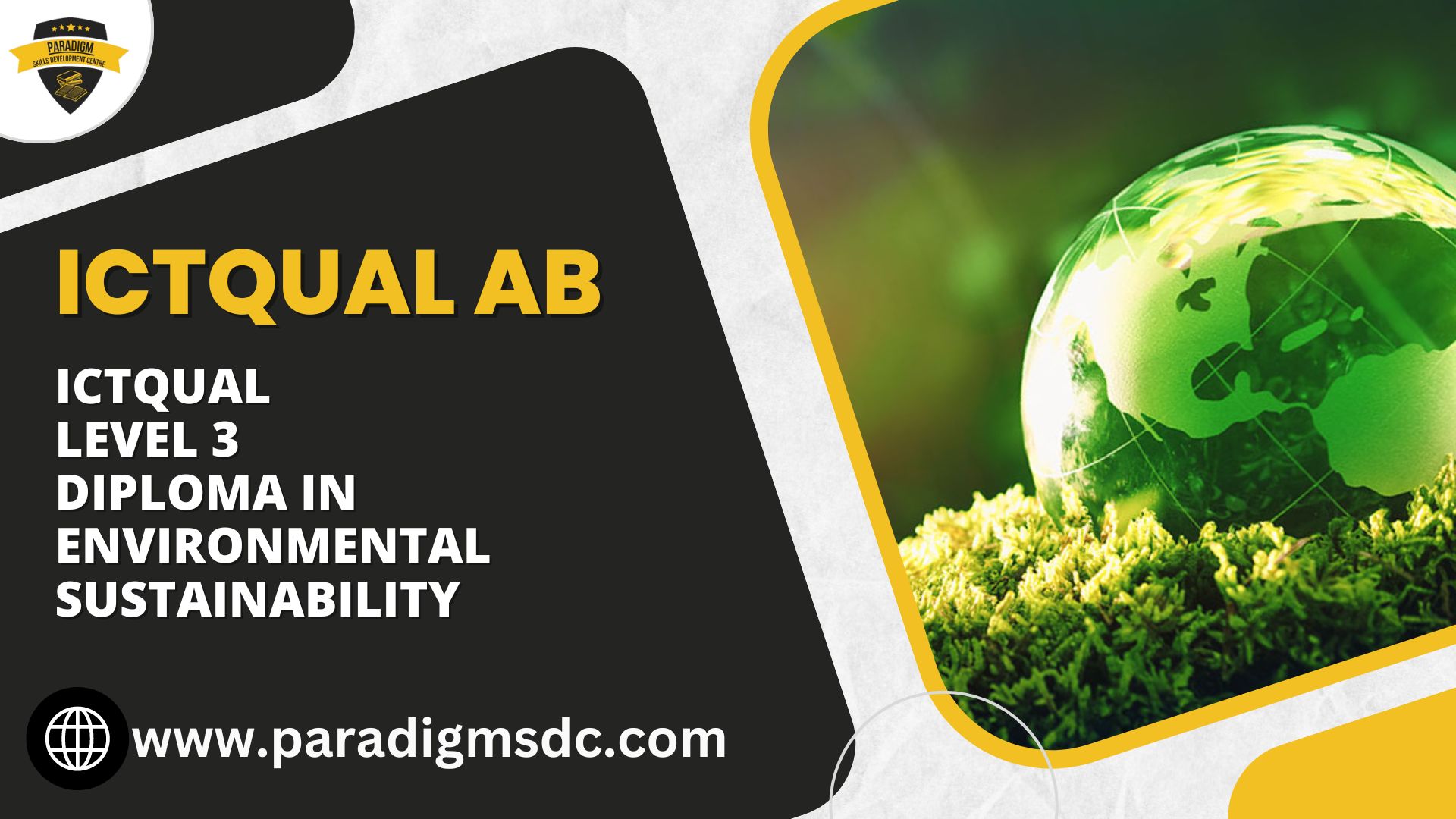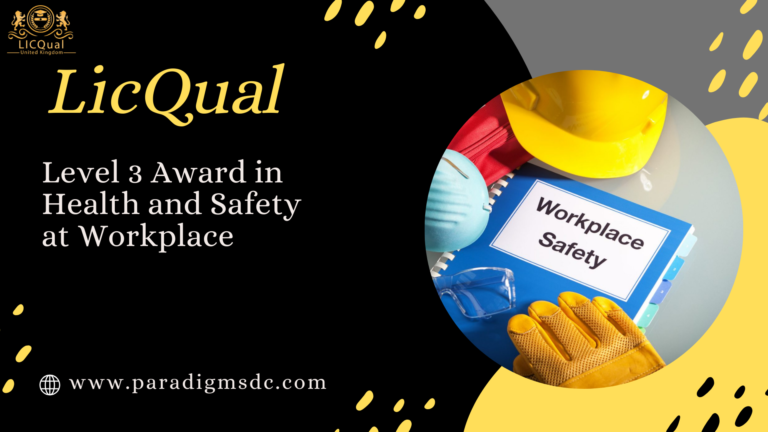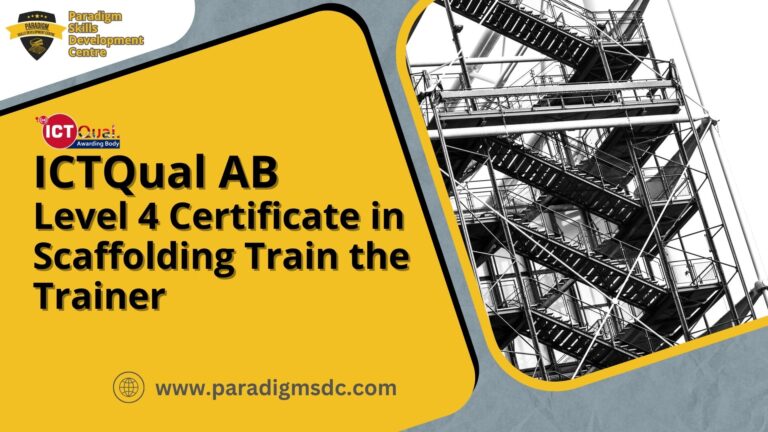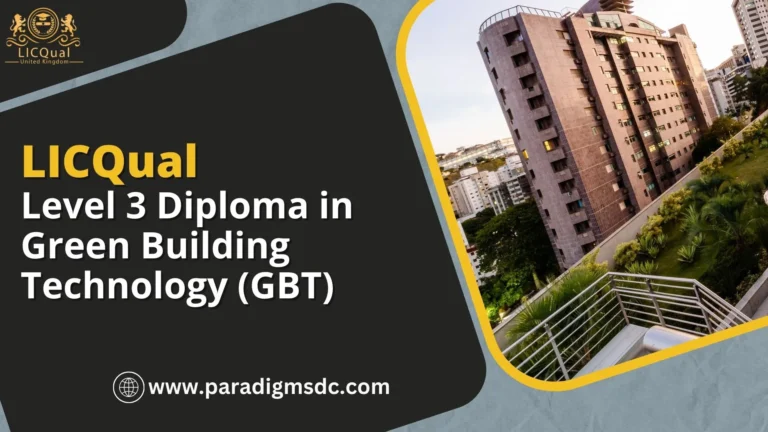Course Introduction
The ICTQual Level 3 Diploma in Environmental Sustainability is designed to equip participants with advanced knowledge and skills in managing environmental sustainability within various organizational contexts. This diploma emphasizes both theoretical understanding and practical application of sustainable practices, making it ideal for professionals aiming to lead environmental initiatives.
Course Overview
Participants of this diploma delve into key aspects of environmental sustainability, including policy development, resource management, and sustainable business practices. The curriculum is structured to provide a deep understanding of environmental challenges and solutions, preparing learners to implement effective strategies in real-world scenarios.
Course Study Units
- Introduction to Environmental Science
- Principles of Sustainable Development
- Environmental Policy and Governance
- Environmental Sustainability
- Environmental Impact Assessment
- Sustainable Business Practices
Learning Outcomes
Upon completion, participants will:
Introduction to Environmental Science:
- Comprehensive Understanding: Gain a thorough understanding of key environmental concepts, including ecosystems, biodiversity, and the interconnectedness of environmental systems.
- Analytical Skills: Develop the ability to analyze environmental issues such as climate change, pollution, and habitat destruction using scientific principles.
- Awareness: Increase awareness of the importance of environmental conservation and sustainable resource management practices.
- Critical Thinking: Enhance critical thinking skills by evaluating the impact of human activities on the environment and exploring potential solutions to environmental challenges.
- Interdisciplinary Perspective: Appreciate the interdisciplinary nature of environmental science, drawing on insights from biology, chemistry, geology, and other fields.
Principles of Sustainable Development:
- Understanding Sustainable Development: Develop a clear understanding of the principles and goals of sustainable development, including meeting the needs of the present without compromising the ability of future generations to meet their own needs.
- Systems Thinking: Cultivate a systems thinking approach to sustainable development, recognizing the interconnectedness of social, economic, and environmental systems.
- Innovation and Creativity: Explore innovative approaches to sustainable development, including sustainable urban planning, renewable energy technologies, and circular economy strategies.
- Ethical Considerations: Consider ethical considerations related to sustainable development, such as environmental justice, equity, and social responsibility.
- Practical Application: Apply sustainable development principles to real-world scenarios, identifying opportunities for positive change in various sectors including energy, transportation, agriculture, and urban development.
Environmental Policy and Governance:
- Policy Analysis: Gain the skills to analyze environmental policies at local, national, and international levels, understanding their objectives, implementation mechanisms, and effectiveness.
- Stakeholder Engagement: Learn how to engage with diverse stakeholders, including governments, businesses, non-profit organizations, and local communities, in the development and implementation of environmental policies.
- Legal Frameworks: Understand the legal frameworks governing environmental protection and conservation, including regulatory frameworks, international agreements, and treaty obligations.
- Advocacy and Activism: Explore strategies for environmental advocacy and activism, including grassroots movements, lobbying, and public awareness campaigns.
- Policy Evaluation: Develop the ability to evaluate the outcomes and impacts of environmental policies, identifying strengths, weaknesses, and areas for improvement.
Environmental Sustainability:
- Holistic Perspective: Develop a holistic perspective on environmental sustainability, considering social, economic, and environmental dimensions of sustainability.
- Systems Thinking: Apply systems thinking to analyze complex environmental challenges and identify interconnected solutions.
- Innovation and Technology: Explore the role of innovation and technology in promoting environmental sustainability, including renewable energy technologies, green infrastructure, and sustainable transportation solutions.
- Behavioral Change: Understand the importance of individual and collective behavior change in achieving environmental sustainability goals, including consumer choices, lifestyle changes, and community engagement.
- Global Citizenship: Cultivate a sense of global citizenship and responsibility towards environmental stewardship, recognizing the interconnectedness of local and global environmental issues.
Environmental Impact Assessment:
- Assessment Skills: Develop the skills to assess the environmental impacts of proposed projects, policies, and activities, using appropriate tools and methodologies.
- Risk Assessment: Identify potential environmental risks and hazards associated with human activities, and develop strategies to mitigate these risks.
- Regulatory Compliance: Understand regulatory requirements for environmental impact assessment, including environmental impact assessment (EIA) regulations, permit processes, and compliance monitoring.
- Stakeholder Engagement: Engage with stakeholders, including affected communities, environmental groups, and regulatory agencies, in the environmental impact assessment process.
- Communication Skills: Communicate findings and recommendations effectively to decision-makers, stakeholders, and the public, using clear and accessible language.
Sustainable Business Practices:
- Business Ethics: Understand the ethical considerations and responsibilities of businesses in relation to environmental sustainability, including corporate social responsibility (CSR) principles and stakeholder engagement.
- Sustainability Strategy: Develop sustainable business strategies that integrate environmental considerations into core business operations, including supply chain management, product design, and waste reduction initiatives.
- Resource Efficiency: Identify opportunities for resource efficiency and waste reduction within business operations, including energy efficiency measures, water conservation, and recycling programs.
- Sustainable Procurement: Implement sustainable procurement policies and practices that prioritize environmentally and socially responsible suppliers and products.
- Measuring and Reporting: Develop systems for measuring, monitoring, and reporting on environmental performance, including key performance indicators (KPIs), sustainability reporting frameworks, and environmental management systems (EMS).
Course Benefits
- Professional Advancement: Enhance career prospects with advanced expertise in environmental sustainability.
- Industry-Relevant Skills: Acquire practical skills applicable across diverse sectors.
- Networking Opportunities: Engage with industry experts and peers to exchange ideas and insights.
- Credential Recognition: ICTQual accreditation ensures recognition of skills and knowledge internationally.
Who is This Course For?
This diploma is suitable for:
- Environmental managers and officers seeking to deepen their expertise.
- Sustainability consultants and auditors aiming to expand their service offerings.
- Corporate professionals responsible for integrating sustainability into business strategy.
- Government officials and policymakers involved in environmental governance.
Future Progression
Completion of the Level 3 Diploma opens pathways to:
- Further Education: Pursue higher qualifications in sustainability or related fields.
- Career Advancement: Take on leadership roles in environmental management.
- Specialization: Focus on niche areas such as renewable energy or circular economy practices.
- Consultancy and Entrepreneurship: Start a consultancy or venture focused on sustainable solutions.
Conclusion
The ICTQual Level 3 Diploma in Environmental Sustainability offers a robust platform for professionals committed to driving environmental stewardship and sustainable development. Through its comprehensive curriculum and practical focus, this diploma equips learners with the skills needed to tackle global environmental challenges effectively. Whether aiming for career advancement or seeking to make a substantial impact within organizations, this diploma provides the knowledge and credentials essential for success in the field of environmental sustainability.







